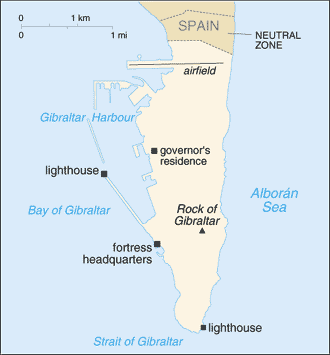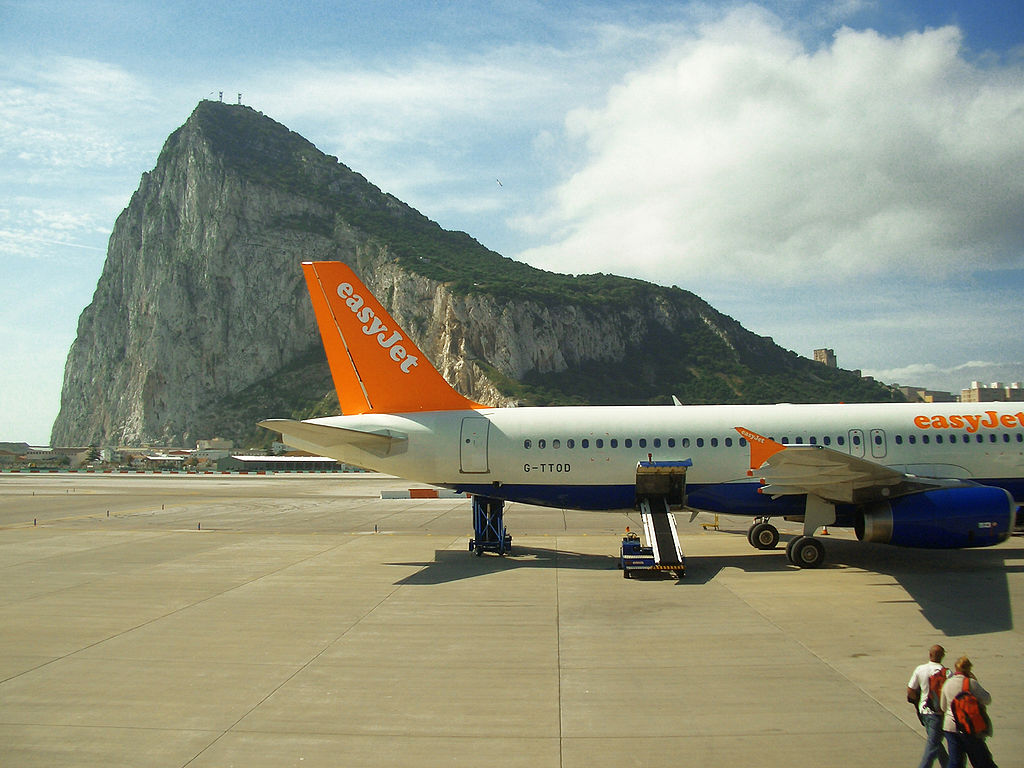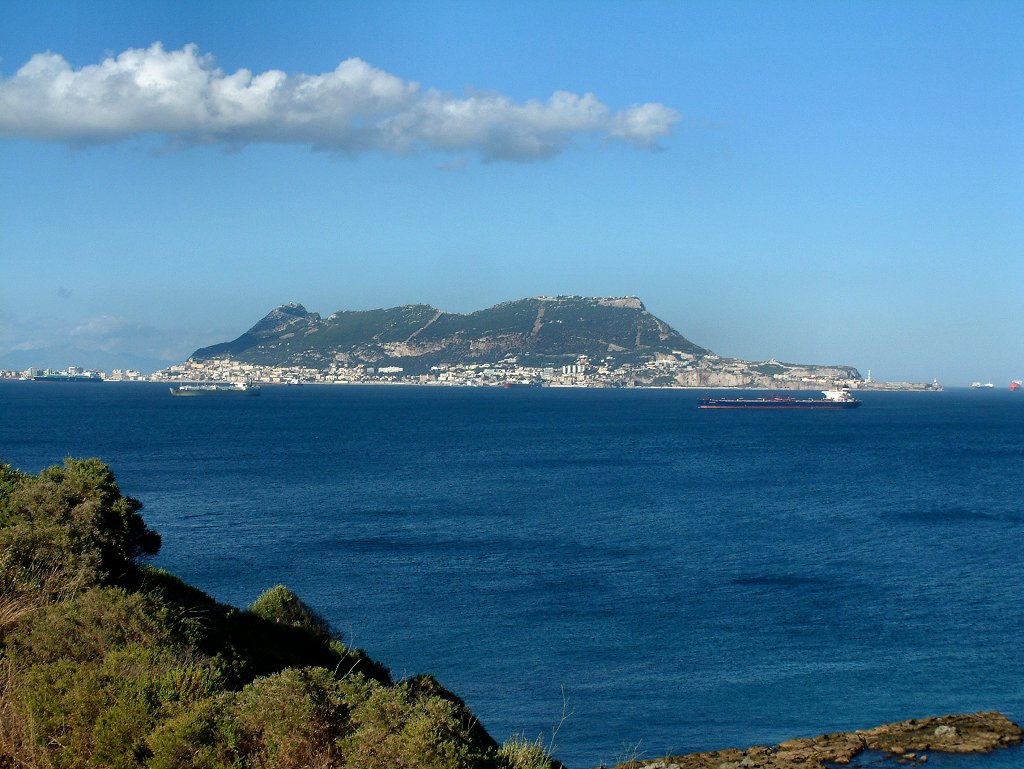Why People Are Now Talking About Gibraltar
By:
As Britain begins the labyrinthine process of leaving the European Union, a small but potentially serious stumbling block has already been thrown up: Gibraltar, a small territory at the southern tip of Spain that's been a British possession since the 18th century.
 CIA World Factbook - wikimedia.org
CIA World Factbook - wikimedia.org
With a population of only 32,000, the British territory is an unlikely flashpoint for an international incident. But Spain and England have spent 300 years poking each other over control and access to the peninsula. Now with the complex Brexit negotiations just starting, Gibraltar is back in the news, and the scuffle over who controls it continues.
Isn't Gibraltar just a big rock?
Technically, Gibraltar is a British Overseas Territory, located on the southern end of the Iberian Peninsula. It shares its northern border with Spain, and is about 2.6 square miles in size.
Much of the peninsula is dominated by the limestone promontory known as the Rock of Gibraltar. The rest is a heavily built-up and densely packed urban area with housing, docks, a stadium, an airport, administrative offices, and military facilities.
 GibMetal77/WikiMedia Commons - wikimedia.org
GibMetal77/WikiMedia Commons - wikimedia.org
Wait, why does England control part of Spain? How'd that happen?
Gibraltar spent centuries in the hands of various powers until Spain took it in 1462. It remained in Spanish hands until the War of Spanish Succession in the early 1700s. Spain's king had died without an heir, sending Europe into war over who would take the throne. During that conflict, Gibraltar was captured by an Anglo-Dutch fleet, and was ceded to England to get the British out of the war.
It's been an English possession since 1713, becoming a major Royal Navy base — and a constant source of friction between England and Spain.
So what does Brexit have to do with this?
After British Prime Minister Theresa May formally triggered the United Kingdom's exit from the European Union last month, the EU released draft guidelines for how the negotiations will go. Buried in the language of this nine-page document was a paragraph that seems to back Spain's claims on the peninsula — and gives Madrid veto power over any UK-EU agreement on Gibraltar:
After the United Kingdom leaves the union, no agreement between the EU and the United Kingdom may apply to the territory of Gibraltar without the agreement between the Kingdom of Spain and the United Kingdom.
British politicians and pundits were royally peeved by this, with one even intimating that, if necessary, Britain would fight Spain to keep Gibraltar, just as former Prime Minister Margaret Thatcher went to war with Argentina to keep the Falkland Islands in 1982.
 WikiMedia Commons - wikimedia.org
WikiMedia Commons - wikimedia.org
While most observers dismissed this as hyperbole, it's indicative of the problems the UK will have going forward, with Scotland and Northern Ireland —which both voted to remain in the EU — weighing breaks with London. It's also a sign of how complex and emotional the Brexit negotiations will be.
Doesn't Britain have a bunch of other overseas possessions?
They have almost a dozen, with a population of over 250,000 in total. Some of these include high-profile vacation and banking spots like Bermuda, the British Virgin Islands, the Cayman Islands, the Falkland Islands, Montserrat, and the Turks and Caicos Islands. Many of these Overseas Territories aren't EU members, and had no input on the Brexit vote.
Their populations are all over the map as far as whether they want the UK to leave. None have sparked the same controversy as Gibraltar.
What do the Gilbraltarites think of the whole thing?
It's "Gibraltarians," actually, and they're caught in limbo. The residents of the peninsula overwhelmingly think of themselves as British. The territory uses British money, pays taxes to England, and has all the cultural hallmarks of its parent country. In 2002, 99 percent of the population also rejected a referendum that would have given Britain and Spain shared control over the peninsula.
At the same time, the country spent years seeking EU membership, and voted to remain in the EU by almost the same margin as the 2002 vote. Gibraltar has thousands of residents who work in Spain, and its economy depends on easy access for tourists and European merchants. Leaving the EU will jeopardize its economy.
What happens next?
The EU likely will back Spain's claims to Gibraltar, as Spain is a key member of the alliance. And Spain is showing no signs of backing down, sending a warship into Gibraltarian waters — only to have it escorted away by Royal Navy ships.
